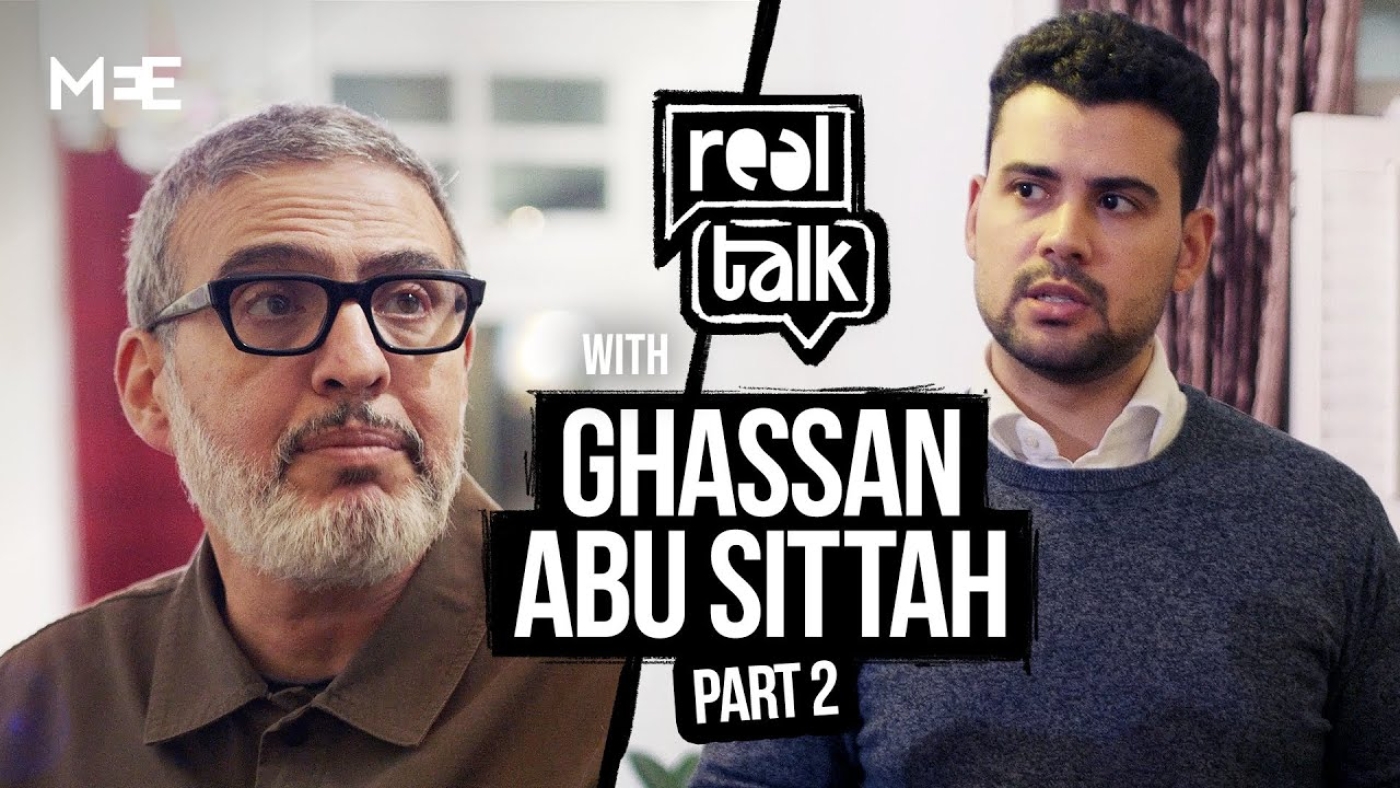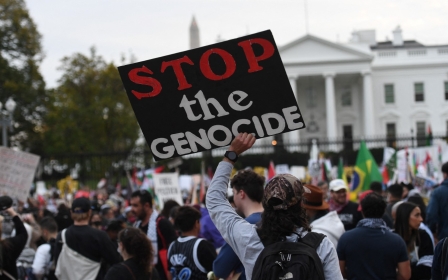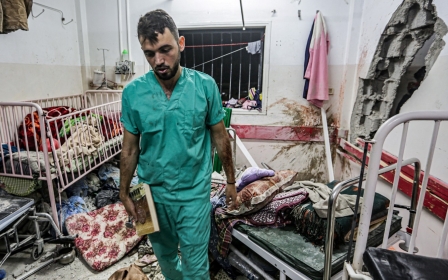War on Gaza: Palestinian surgeon says UK political parties defying the will of the people
Prominent British-Palestinian surgeon Ghassan Abu Sittah has accused the UK's main political parties of going against the will of the British people through their unwavering support for Israel amid the ongoing war in Gaza.
In a wide-ranging interview with Middle East Eye's Real Talk series, Sittah said that "the British political elite, be it the government or the leadership of the Labour Party, continues in its position of supporting Israeli attacks on Palestinians".
"MPs are under a lot of pressure from their constituents, but at the same time feel they are being blocked from the leadership of their parties from expressing the will of the people," he said.
"It's almost like the voice of the British people is not being heard and the voices of a lot of MPs are being censored by the leadership of the two main parties."
Since the decades-long conflict escalated after the 7 October attack, the ruling Conservatives and the opposition Labour Party have been resolute in backing Israel, despite the latter facing internal fissures due to Israel's heavy bombardment of the Gaza Strip and mounting civilian death toll.
New MEE newsletter: Jerusalem Dispatch
Sign up to get the latest insights and analysis on Israel-Palestine, alongside Turkey Unpacked and other MEE newsletters
Last month, dozens of MPs from the Labour Party voted to call for a ceasefire, underscoring mounting unease within the opposition regarding Britain’s foreign policy stance.
Labour leader Keir Starmer, a former human rights lawyer, has been a keen supporter of Israel's retaliatory strikes, and initially backed Israel's right to withdraw water supplies to the region before walking back on his statements.
For more than two months, Starmer and his Shadow Cabinet repeatedly opposed calling for a ceasefire, and only since 18 December have they changed their position, after the ruling Conservative Party called for a "sustainable ceasefire".
In recent weeks, expressions of solidarity with Palestinians have been heavily censured within the party, with veteran Labour MP Andy MacDonald facing suspension for calling for peace among Palestinians and Israelis between "the river and the sea".
'Tube of burned tissue'
During his interview with MEE, Sittah shared new details about what he said was Israel’s use of white phosphorus in Gaza, where he treated civilians - both children and adults - for burns caused by the incendiary, toxic substance.
"The injuries from white phosphorus are very characteristic," Sittah said.
"Phosphorous burns drill their way through the body, until they reach a very deep part of the body, because as a chemical, it continues to burn until it’s no longer exposed to oxygen.
"It's like a tube of burned tissue."
Human Rights Watch has warned that Israel is using white phosphorous in the Gaza Strip and Lebanon. While the use of white phosphorus alone isn’t considered a war crime, deploying it deliberately against civilians or in a civilian area is.
Sittah said the burns he saw were the same as those he treated in Gaza in 2009, when Human Rights Watch also documented the use of white phosphorus against Palestinians.
'Voices silenced'
Sittah entered Gaza from Egypt on 9 October and spent 41 days working mainly in the al-Ahli and Shifa hospitals in northern Gaza. He said he had to leave the enclave because a lack of medical supplies, including anaesthetics, meant he couldn’t continue his work.
He told MEE that police came to his London home while he was away to question his wife about his work in Gaza.

When hearing the news, "I was extremely distressed," he told MEE, pointing out there was no reason for police to speak to his wife, given the high profile he has as a surgeon in conflict zones.
"It's not like I was someone who had shown up out of the blue to be in a war."
Sittah said he sees a double standard in the way the UK and the West have largely backed Israel while resisting calls for an immediate ceasefire.
"We have to ask: has the world turned its back on all international laws?"
"Why is the world accepting the killing of 10,000 Palestinian children,” he said. “Either we now accept it's a free-for-all… or that Palestinian children don’t matter as much as 10,000 children in London or 10,000 children in Paris.
"I don’t think we would have had the same reaction if we had 10,000 Ukrainian children killed in such a time," he said.
'Rich tradition in Palestinian life'
Sittah also reflected on his early decision to become a surgeon. He credited his entry into medicine with memories of the 1970s Lebanese Civil War and Israel's siege of Beirut.
"It drove my decision to go into medicine and then my decision as a medical student to go into Palestine during the First Intifada," he said.
Since then, he has worked in other conflict zones, including in Iraq, Syria and Yemen. Sittah said he would return to Gaza "in a heartbeat", if he had the resources to continue his work as a surgeon.
“I see myself as someone who comes from a different age, where these things were the expected norm," he said.
"I feel myself as part of a rich tradition in Palestinian life where health was an intrinsic part of the national liberation movement….I belong to a time before the corporatisation of medicine, before health became a commodity," he said.
Watching the war unfold now from the UK, Sittah said his greatest fear is that Israel will "achieve in the ceasefire… what they failed to achieve in the war," by emptying Gaza of its roughly 2.3 million inhabitants.
"Gaza is home in ways that is beyond home. Gaza carries the essence of the Palestinian struggle," he said.
Middle East Eye delivers independent and unrivalled coverage and analysis of the Middle East, North Africa and beyond. To learn more about republishing this content and the associated fees, please fill out this form. More about MEE can be found here.





